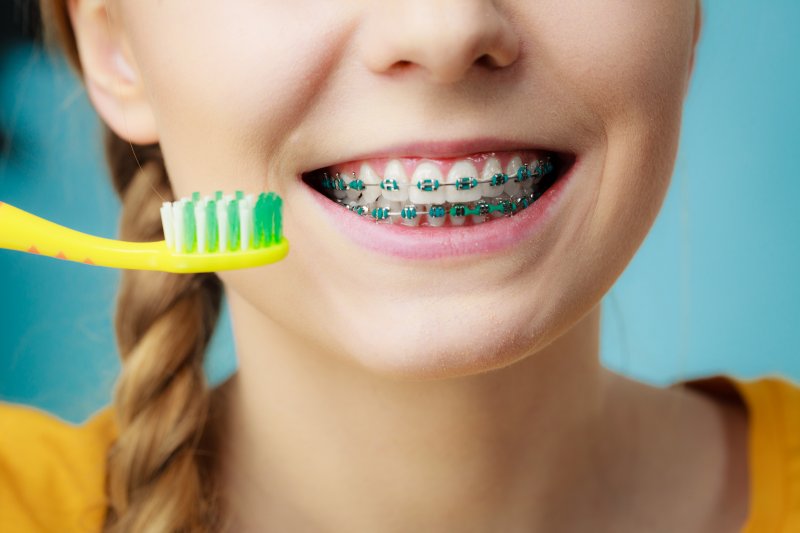
You’re probably eager to finish your treatment if you’ve started wearing braces. After all, the end result will be a straightened and aligned smile! Until then, though, you’ll need to clean your teeth a bit differently than usual. You see, brushing and flossing with braces isn’t the same as what you’d do without them. That said, you may not know the proper steps for each activity. Luckily, your Windermere dentist is here to teach you. Read on to learn how to brush and floss your teeth while undergoing braces treatment.
How to Brush with Braces
Figuring out how to brush around metal brackets and wires might initially seem daunting. Still, it’s possible when you follow the steps below:
- Get Started: First, remove all elastics, bands, or other removable parts from your braces.
- Pre-Rinse: Rinse with water to loosen any food lodged around the appliance.
- Clean Your Braces: Carefully brush around your braces’ wires and pins. In particular, brush each wire from top to bottom, moving around the upper and lower teeth. From there, brush on top of each bracket.
- Brush Your Teeth: Brush every tooth at the gum line and above and below the brackets to remove plaque and food debris. As you usually would, continue this process for two minutes.
- Post-Rinse: After brushing, rinse your mouth thoroughly with water. Next, examine your teeth and braces in the mirror to look for any remaining food particles.
How to Floss with Braces
Of course, flossing is vital whether or not you have braces. Still, it’s even more crucial during treatment as food debris can get stuck in metal parts.
To make flossing easier with your braces, try using a floss threader. This item will let you thread floss under the main wire before passing the string between your teeth. After the threading, you can then move the floss up and down gently without snapping it.
Have Regular Dental Checkups
Even as you continue brushing and flossing with braces, you should also see your orthodontist for regular checkups. They’ll be able to repair pieces, answer questions, and address concerns with the treatment process. Your orthodontist might also recommend products like fluoride mouthwash to control plaque buildup.
As you can see, braces will change your brushing and flossing routine. Still, you can trust that the shift is well worth the straightened smile you’ll soon get!
About the Author
Dr. Gary Rosenfeld is a dentist based in Medford, NY, having earned his dental doctorate from the Columbia University Dental School. He’s also a member of the American Dental Association and the Academy of General Dentistry. His specialties include preventive, cosmetic, and restorative dentistry and emergency care. His office also provides both traditional braces and Invisalign clear aligners. Dr. Rosenfeld currently practices at Island Daily Dental Care and is reachable on his website or by phone at (631)-286-9000.

